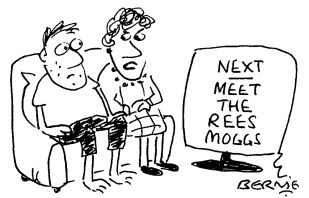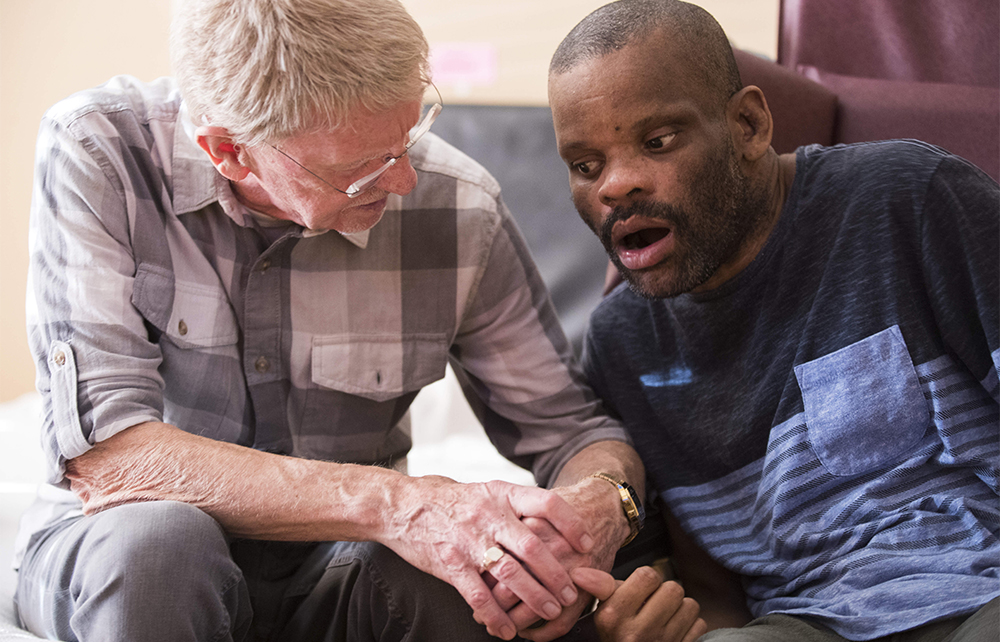Professor Guy Leschziner writes that he was raised in a secular household that was ‘entirely irreligious’ yet with ‘a strong sense of morality, of right and wrong’. As an eminent neurologist and a rational atheist, it’s striking that his study of the extremes of human behaviour should reach for such Biblical terms. Is there an element of ghoulishness here? Seven Deadly Sins has a structure of which David Fincher, director of the gruesome film Seven, might approve.
To zero in on the sins is undoubtedly a darkly entertaining approach, if not for the squeamish. Having been a consultant at Guy’s hospital for more than 25 years, Leschziner has seen ‘the full spectrum of human morality’: inexplicable altruism, generosity, kindness, love. The woman who donates a kidney to a complete stranger; the kind Samaritan diving into the murky waters of the Thames to save a drowning man. On the other hand, this is work that if you were to take it home with you on a daily basis would be the stuff of nightmares:
Unspeakable cruelty, sloth and gluttony. Patients eating themselves to death, or those people brought into the emergency department beaten to oblivion, the victims of anger, envy, pride, lust.
But far from blocking the memories, Leschziner wants to think in detail about all of this. The result is an elegantly argued book that does far more than just lift the curtain on what occurs between a neurologist and his patients. Through devastating modern case studies, or first-hand accounts of individuals Leschziner has worked with, each ‘sin’ is explored. And as he argues in defence of that archaic label, we tend to bring our own sense of horror: ‘At the heart of these behaviours that we term sins is the concept that by our actions we are judged.’
Judgment is often a part of the stories, even from patients themselves. For his exploration of lust, Leschziner turns to Hugh Jarvie’s 1950s studies of soldiers whose head injuries affected their sexual behaviour. In the present day, using the most current thinking and research, he makes a strong case for the existence of sex addiction, which some scientists still dispute. Here he is well served by a particularly eloquent, self-aware patient, who distinguishes between the ‘wanting’ of sex and dislike of the behaviour.
That same subtlety of distinction is there in a heart-rending account of a young American couple and their family. The husband tries to cope with the wife’s personality as her brain is cruelly ‘twisted’ by Huntington’s disease, with mood swings and debilitating apathy (categorised here as ‘sloth’). Under repeated verbal attack for his perceived failures, the husband tells Leschziner that these symptoms are
hard to take from somebody you love… Because those words, they’re out there and they roll around inside your head, even though you know they’re coming from a place that’s probably not her.
Similarly, she’s not responsible for her inability to look after her young children.
It’s in these fine distinctions – what is a person, and what is a symptom? – that biology and psychology meet, and of course collide with philosophy. Deterministic scientists don’t want to talk about better angels or instincts, let alone a soul. But Leschziner, like many of his patients, is happy to do so. He repeatedly acknowledges a mind as distinct from a brain. His professional work isn’t short on tragic examples of human beings who, through disease or injury, should not be ‘judged’ for their actions. And yet, he writes:
On an individual level, I squirm at this. To consider free will as simply an illusion runs contrary to every fibre of my being. It is difficult to believe that I might be completely deceived by my own mind, and that this, too, is the case for everyone else.

Leschziner never loses sight of his own questions as a human being. From the moment he could talk, he remembers having to correct the way people pronounce his Polish-German name. His paternal grandfather was arrested on Kristallnacht and imprisoned in Buchenwald until a little known, near-miraculous rescue of 4,000 men in 1939 brought him to the UK. Bar one great-uncle, the murder of the rest of the family is ‘the ultimate reason for the rarity of my family name’ that no one can pronounce.
The strangeness that makes people stumble is a formative part of Leschziner’s identity – shorthand for inheriting ‘a story of human cruelty, inhumanity, of evil on an industrial scale’. His reckoning with that trauma has been lifelong and has made him a guide with a complex perspective. As a reader, you feel privileged to be allowed to sit in on his study.







Comments